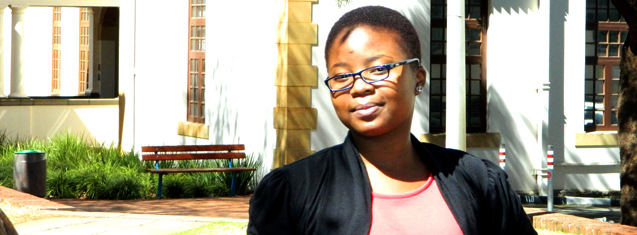Latest News Archive
Please select Category, Year, and then Month to display items
12 January 2024
|
Story Nonsindiswe Qwabe
|
Photo Sonia Small
 Since joining the UFS in 2008, Dr Grey Magaiza has worked extensively on approaches that can foster the socio-economic transformation of societies.
Since joining the UFS in 2008, Dr Grey Magaiza has worked extensively on approaches that can foster the socio-economic transformation of societies.
“The future should be one where communities can decide on their development agenda and futures. That’s the most important for me.” Dr Grey Magaiza, Deputy Director of the Centre for Gender and Africa Studies (CGAS) and Head of the Community Development programme on the Qwaqwa Campus, is passionate about capacitating communities to be agents of change and advancement. His vision for the future emphasises the empowerment of communities to take charge of their development by actively participating in decision making and the implementation of development projects that can improve their lives.
Since joining the UFS in 2008, Dr Magaiza has worked extensively on approaches that can foster the socio-economic transformation of societies. Over the years, he has crafted his research speciality into one that he is most proud of – being an interdisciplinary scientist immersed in the development of communities.
“I’m in a fortunate position of researching what I like. I say ‘fortunate’, because I’ve taken the time to understand what I’m passionate about, which is the overall field of rural livelihoods and livelihood futures – in short, community development. My research starts from an engaged university, understanding the elements that a university must use to enhance transformation and relevance to its immediate community in terms of development.”
One of the ways he has done this is by looking at social entrepreneurship as a development approach for young people in a rural setting. Through workshops with non-profit and civic organisations in Qwaqwa, Dr Magaiza has been helping these organisations to map out their needs and actively meet them through the involvement and support of external role players.
“We understand that communities are part of the national development agenda, but even that national agenda respects community knowledge and intentions and allows communities to shape their identity. A critical enabler of this is community organising. You bring back the capacity in communities to have dialogues on issues affecting them as spaces for engagement, knowledge exchange, and for people to just talk about their way forward.”
By enabling communities to define their development agenda, they can address their specific needs, challenges, and aspirations, he said. “When I look at livelihood futures, it’s quite an exciting aspect of my work – it’s like looking into a fortune tellers’ globe, because you’re not deciding for communities what they should do, but the communities themselves take those decisions.”
Young Communication student publishes second book
2014-09-03

Most people get to 90 and never publish a book. Some people at 19 have not even read a book.
But 19-year-old BA Communication student at Kovsies, Grace Nthebe, has already published two books, only in this year...
Grace writes poetry and her first book is called Reflections by Grace.
“It is a personal book and it was only by the grace of God that I could do this reflection,” says Grace.
“Reflections take a look at four aspects of myself:
- Me as a beginner in my life;
- Being a believer of love;
- Looking at critical conditions in life;
- And then finally, taking a look at myself as an African woman.”
Grace became fascinated with poetry in Grade 10. She developed as a poet more and more when she was in Grade 11 and started relying on her writing as a means to express the unexpressed.
“A friend of mine took a look at my writing and asked why I don’t have it published?”
“That was not easy, but I covered everything smoothly and took my time with it.”
More recently, Grace’s second book called Tribute to Love was also published.
“This is more of a motivational book,” she says.
“Young women often have to pretend to be ‘okay’ when going through tough times like a break-up. In Tribute to Love I go through ten basic steps to recover fully after a break-up.”
“A lot of times recovery starts with forgiveness and if you have social support, it eventually ends with learning to let go and being willing to love again. Relationships and break-ups are often phases every person goes through, but it is important to go through it in the right way…”
Grace’s books are self published by Quick Fox and available online at amazon.com